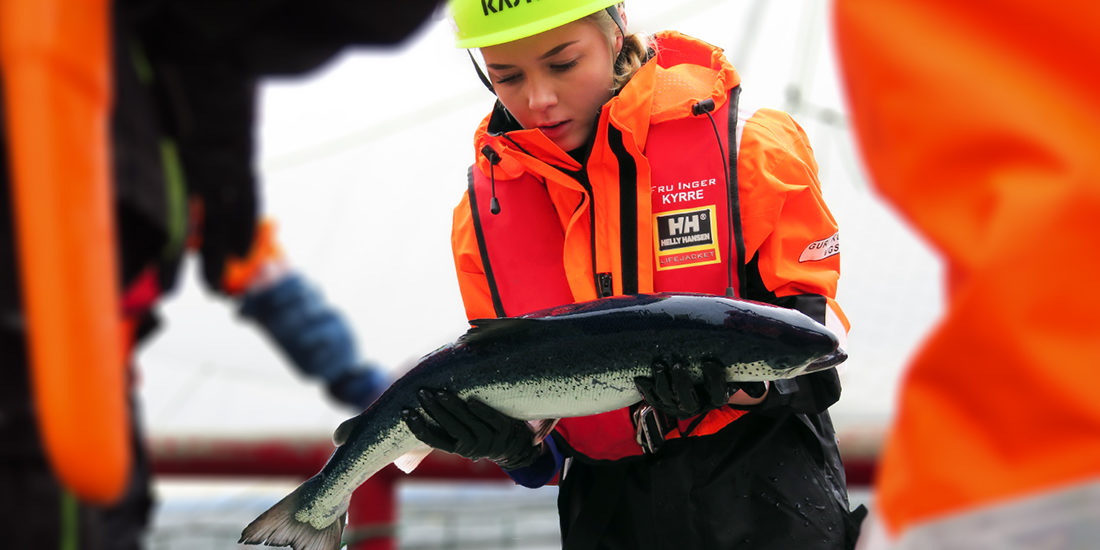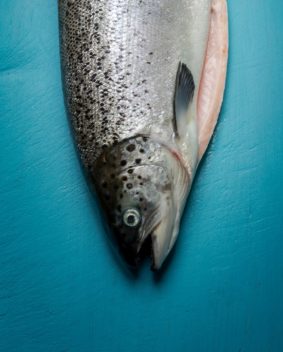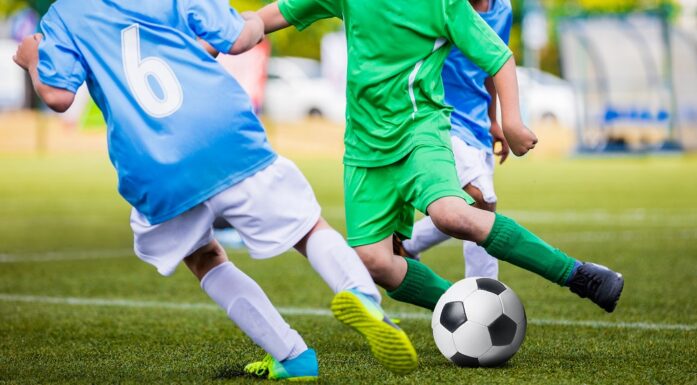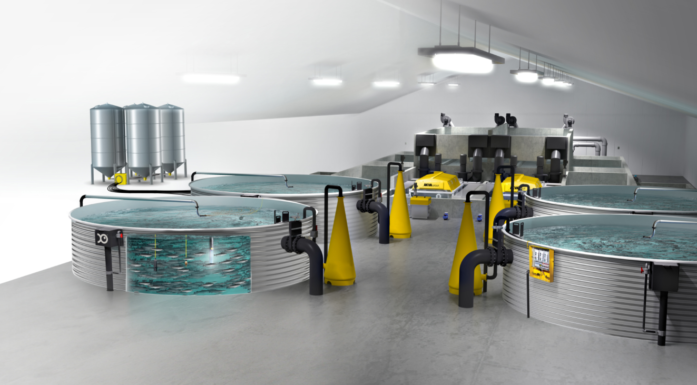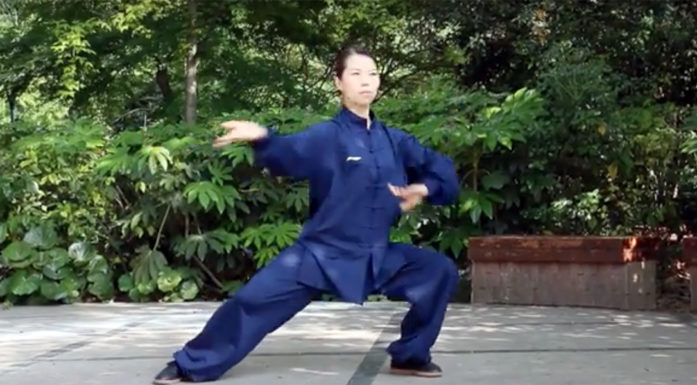Teaching the next generation of fish farmers for the aquaculture industry
We need to know more, and teach more people, about aquaculture so we can use the ocean’s resources to the greatest extent possible while protecting the environment.
The global food shortage is a growing concern.
The BlueEDU Project
- Overall objective: Identify the skills gaps within the European aquaculture industry, in order for the future workforce of aquaculture to have the knowledge and skills required for the sector to remain competitive.
- Why the BlueEDU research project: The EU has invested significant sums of money over the years to increase food production in the ocean, including both research and training measures. In spite of this, following Brexit, 70 per cent of the farmed fish produced in Europe will come from non-EU countries, specifically Norway, Turkey and the United Kingdom.
- Fish farming in Greece has decreased from 140 000 to 100 000 tonnes annually, due in part to a lack of capital following the financial crisis.
- Partner countries in the research project include Norway, Iceland, Finland, Great Britain, Denmark, the Faroe Islands and Ireland in northern Europe, and Greece, Cyprus, Croatia, Italy, Spain and France in southern Europe.
- You can read more at: www.blueedu.eu
More biomass is already being cultivated through aquaculture than is being caught wild in the ocean. But achieving more efficient cultivation that is also environmentally sustainable will require more knowledge and education in the field.
“Producing fish is far less demanding than producing meat. But to bring production up to the level needed, we have to increase the knowledge among people who work in the blue economy,” says Associate Professor John Birger Stav.
Stav works at NTNU’s Department of General Science and is the project coordinator for the EU research project BlueEDU. (See fact box.)
- You may also like: Raising better salmon
Textbooks lacking
Researchers have surveyed the educational requirements for skilled workers in seawater farming in twelve European countries, but are finding that educational programmes lack textbooks and updated professional materials.
Technical developments are evolving rapidly, and a lot of subject matter goes out of date in just a few years.
The differences from country to country are significant. In Greece, which is the fourth largest producer country in Europe, companies need to conduct all training themselves. Vocational training in aquaculture in the eastern Mediterranean simply isn’t offered.
Major challenges also exist in Norway, where several hundred workers do not have any certificate of completed apprenticeship.
The aquaculture industry is growing fast, but the availability of study programme spaces is still limited. Among workers who have been employed for the last six years, two out of three lack the relevant training.
Article continues under photo.
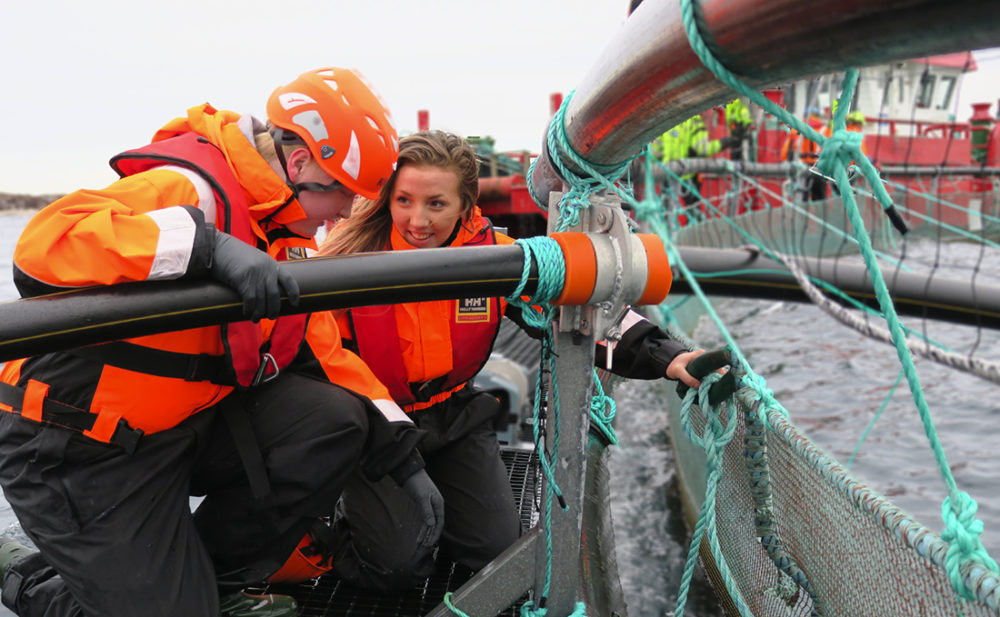
Norway has fourteen vocational schools throughout the country that offer apprenticeships. Half of the schools also offer training to people who are already working in the industry but lack a relevant educational certificate. Students in Norway are close to the industry and learn a lot through hands-on training. Illustration photo: John Birger Stav
Cold and warmer aquaculture
The research project has focused on farmed salmon and trout in the cold waters of Northern Europe, as well as sea bass and sea bream in the warmer Mediterranean region.
The project has mapped out companies’ competency needs into the future and whether the educational sector will be able to deliver what companies are actually asking for.
“We’ve been present at national and international meetings. We’ve asked companies for their input on what’s important for the industry. All of Europe believes education is important, but it’s not at the top of the priority list for a lot of people. They don’t necessarily see the connection between fighting disease and education,” Stav says.
BlueEDU started in December 2016.
- You may also like: Keeping ocean currents from spreading disease in farmed salmon
Improved knowledge makes for happy salmon and better profits
Even though aquacultural practices vary in the different countries, they all share some basic features: it’s all about keeping the fish healthy and well fed.
“Despite growing demand, growth in the European aquaculture industry has stagnated. This is happening partly because the industry lacks employees with the right knowledge and skills,” says Stav.
“Knowledge of technology, fish biology and the different farming processes is key,” he says.
Many people make mistakes with fatal consequences, as happened with delousing farmed fish, for example. According to the Norwegian Directorate of Fisheries, nearly 20 per cent of Norwegian farmed salmon died due to delousing practices in 2016.
“At Frøya in Trøndelag county, they’re starting to get on top of the lice battle. The competing aquaculture facilities are cooperating and synchronizing their practices. The effect is that mortality is down to two per cent at the best facilities, profits are way up and animal welfare is much improved,” Stav says.
He adds, “Knowledge and cooperation are the keywords here. We need to create a culture where breeders can collaborate and learn from each other. This is what we’re recommending to the EU to include in training and educating skilled workers.”
Testing innovative teaching methods
Now that the survey data have been collected, the plan is to set up a major European pilot project to test innovative new ways to offer vocational training.
The hope is that more countries will start using similar curricula, teaching methods and technologies, as well as similar means of assessment. This will allow skilled workers who have passed a national vocational qualification exam to automatically have their education accepted by companies in other countries. At the same time it will raise the training standard.
“The largest companies in Norway are positive about joining the pilot project, as are Scottish Sea Farms and the Icelandic companies Arctic Fish and Arnarlax. We also hope to bring the Faroe Islands on board. Then the industry will have a good base for learning from each other and creating common standards,” says Stav.
John Birger Stav believes that increased knowledge transfer is the alpha and omega for the industry, as well as for the EU’s future food production.
